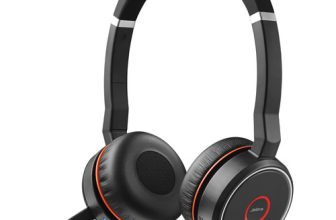
[ad_1]
In the age of technology, focusing on our work or studies has become an increasingly more difficult task. There are countless distractions to throw us off from our work and lead to the dreaded effects of procrastination. A simple notification from social media or a text message from a friend can guide our attention astray for longer than we may intend. While there are countless tips and tricks to keep our focus on what is necessary, one scientifically proven method to aid in concentration is through music.
You have likely heard that music can help you study or work better. But why is that? Studies show that music has a variety of advantageous impacts on the human mind and body. Both the left and right parts of the brain are simultaneously stimulated by music, and this dual stimulation can boost learning capabilities and enhance memory.
Some of these advantageous impacts are as simple as improving our mood. We benefit from listening to our favorite songs while working or studying because music can boost the brain’s production of the hormone dopamine, resulting in decreased feelings of anxiety or depression, as well as relieving symptoms of stress. Think about how difficult it is to try to focus on work when you’re unhappy, frustrated, or in a bad mood. Music is processed directly by the amygdala, the part of the brain involved in mood and emotions, and by stimulating your amygdala, you are essentially putting yourself in a better mood and are therefore more likely to thrive in your studies.
During lengthy study sessions, it is often difficult to find the motivation to persevere on a particular task you’re working on. Having some background music may help with this as music can aid endurance, resulting in improved focus and greater motivation. In some cases, students have found that music helps them with memorization. This is likely because music not only creates a more positive mood, but it stimulates the brain which in turn enhances memory formation.
With a reduced amount of stress during an academic task, the brain is able to be more clear and allow for new information to flow in, thus helping to more easily process any information that requires thinking. This is also why music may help with memory; listening to music reactivates areas of the brain associated with memory, reasoning, speech, emotion, and reward. It is essentially a total workout for your brain. Research has shown that listening to music can enhance sleep quality, mood, mental clarity, and memory while lowering anxiety, blood pressure, and pain or discomfort.
Back in school, we learned various songs in order to memorize particular things. The 50 States Song, the US President’s Song, and none other than the ABC’s. Maybe you even learned one about the planets in our solar system, or perhaps a tune about math or grammar. Our minds can retain so much information when we add a little jingle to it.
Two recent studies — one in the United States and the other in Japan — found that music not only aids in the retrieval of previously stored memories, but also aids in the formation of new ones. It has also been found that music enhances the memory of Alzheimer’s and dementia patients, including a study conducted at UC Irvine, which showed that scores on memory tests of Alzheimer’s patients improved when they listened to classical music. Music evokes memories because when a piece of music is paired with an event or feeling, it can be an effective cue to bring back the strong emotion that was felt at that moment. Our senses are very powerful tools for our brain.
The best type of music to listen to for maximum benefits in study or work will depend on the individual. The reason we always hear that classical music or symphonies are great for studying is because they don’t have any lyrics, as lyrics can be distracting. It is also said that classical music helps fire off synapses, creating or re-energizing brain pathways previously left dormant, as well as improving hearing, spatial reasoning skills and even general intelligence. This is called the ‘Mozart effect’ and many parents believe playing their children classical music will significantly improve their cognitive abilities. Through a series of studies from scientists at UC Irvine, a group of children listening to Mozart and other music versus children with only silence were surveyed, and it was found that the Mozart group showed significantly increased spatial reasoning skills for at least 10-15 minutes.
However, the results of the study have proven to be controversial. Most of the criticisms of the findings argue that the ‘Mozart effect’ is due to the subjects’ enjoyment and appreciation of the music, rather than any mysterious effect Mozart’s music might have on the brain.
“Those who listened to music, Mozart or something else – Bach, Pearl Jam – had better results than the silent group. But we already knew people perform better if they have a stimulus,” Jakob Pietschnig, who led the study, told The Telegraph.
Relaxing music is a good choice for managing stress, whereas upbeat music might boost a person’s thinking processes. Perhaps opt for instrumental music without lyrics if you get easily distracted. If you want to work or study effectively with music, try reducing how distracting music can be, and increase the level to which the music keeps you in a good mood.
Whatever type of music you may like, it is pretty clear that listening to background music while working or studying has a host of benefits and may very well result in improved mood, memory, focus, and other cognitive abilities, as well as lessen the likelihood of stress, anxiety, and depression. Find what works for you and tackle that task with everything you got!

Phiaton offers a wide range of products suitable to help you study or work better. Check out some of the active noise cancellation products such as the 900 Legacy headphones, which feature memory foam ear pads to provide a comfortable fit and proper ear insulation for optimal sound quality. Oddict’s TWIG PRO earbuds are another great choice for minimizing the hustle and bustle of the outside world so that you can get your work done. TWIG PRO’s feature silicone ear tips which enhance sound insulation and provide a snug fit, all while delivering distortion-free sound reproduction. Lastly, Phiaton’s BonoBuds provide a custom made and true sounding listening experience that is perfect for travel, work, entertainment, and everything in between. With 20 hours of battery life, these buds are perfect for all day use when you need to sit down and focus. Power through procrastination with one of these fantastic options for music to get your work and studies completed.
Reference: ttps://www.health.harvard.edu/mind-and-mood/music-can-boost-memory-and-mood
– By Claire Barnett
[ad_2]
Source link






